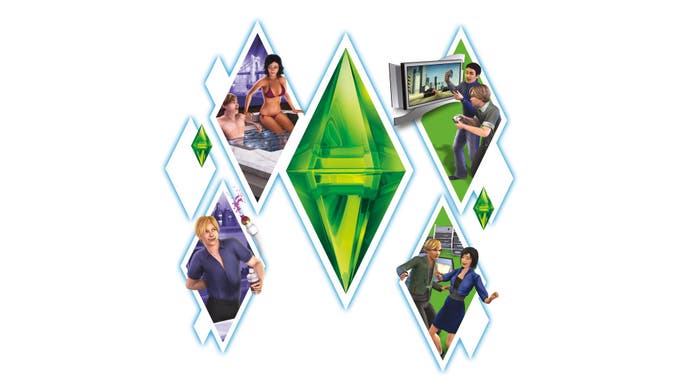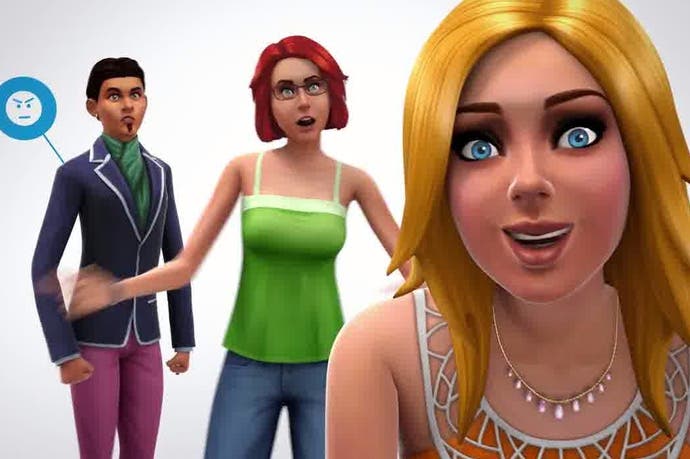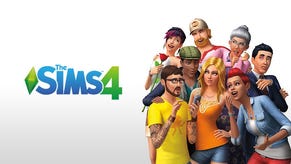Growing up with and growing out of The Sims
A personal journey with EA's blockbuster series.
For 17 years I have been in a relationship with one of the best-selling PC franchises of all time. As all relationships can be, ours has been turbulent, to say the least.
I first played The Sims when I was seven. In the summer of 2000, a friend's big brother brought an unmarked, clearly illegitimate, CD-R to my house with a mysterious new game on it. Though intended as a present for my cousins, and not for me, I was intrigued by this curious gift, unassuming in its clear plastic sleeve.
Popping the CD-R into our hulking, sun-yellowed PC was the start of a relationship which has lasted for the best part of two decades, for better and for worse. I was spellbound by The Sims from the moment I heard the first note of its smooth jazz score.

As a kid with parents going through divorce, the most important element of The Sims was that here was a world I had total control over. I could design my dream house, move in my ideal family and become a famous actress. It was like having an exquisite, endlessly detailed dollhouse, a home from broken-home.
It was a dollhouse with endless expansions, each one bringing new toys to play with. You could buy your date a single rose or box of chocolates in Hot Date, call pest control because a skunk had moved into your home in Unleashed or send another Sim a postcard in Vacation. When I finally had collected all the expansions for the original The Sims my world was a brilliant mess; I'd walk down the street and bump into Avril Lavigne in the street before heading home to place voodoo pins in annoying neighbours. But still I wanted more.
And I myself was beginning to change. Soon enough I was 11 years old and starting to outgrow my world of purposeful house fires and stairless swimming pools. I knew the stork didn't randomly leave babies in your bedroom if you kissed someone passionately. Over at Maxis, things were changing as well, The Sims series growing to take a new direction under the watch of its creator Will Wright.
I will never forget the day I first played The Sims 2, rushing back home from what was an otherwise dreary first year at secondary school. The leap this sequel had taken from the original was unlike anything I'd seen before. Suddenly my Sims were no longer polygon shapes but almost human, with aspirations and goals. They could meet someone, fall in love, get married, get pregnant (morning sickness included), then raise their children from dribbling babies to angsty teens, before settling in their own retirement. You would lead your Sim from life to death.
The detail in the base game had increased tenfold. You could hone your Sim's personality and appearance, with their genetics passing on to their children. Teens could go to university where they lived in dorms and sat exams. There were popular songs in Simlish on the radio and players could specify what they wanted Sims to make for dinner. The possibilities seemed endless.
What I wanted from The Sims had changed. With my parents' divorce ongoing three years later, I was being bullied in school. Early signs of depression were beginning to show. I locked myself in my room and escaped to the warm familiarity.
But I no longer wanted to create oddball Sims who turned into vampires at night or kept a baboon butler, and it's almost as though Maxis knew. I wanted to make a family where the mother works her way from a dishwasher to a head chef, the father kisses her before heading off to his office job, the kids are straight-A students and at the end of the day the whole family sits down for dinner at a dining table. I wanted the stereotypical American dream-style family. I wanted something dependable.
And then things began to change again. Expansions for The Sims 2 were steadily coming out, but the little details I loved began to fall away. More and more paid content packs began to appear, including H&M and IKEA stuff packs. As more expansions came out the ideas became half-hearted, merely adding bulks of content. My stepford family dream fell away and was being replaced by a flat-pack nightmare.
Little did I know, a lot had changed since the first Sims. Maxis' longtime studios in Walnut Creek had been officially closed, and the staff moved to EA offices in Redwood City. Most importantly, in 2006, EA transferred all development of The Sims franchise to The Sims Studio, a division of Maxis, so the developer, and Will Wright, could focus on Spore.
By the time The Sims 3 was released in 2009, I was an angsty 16 year old. I had a much more sociable lifestyle than before and so had spent less time over the years playing The Sims. The honeymoon period was over, The Sims and I had now become strangers. Though I still held a warm place for it in my heart, I had lost touch with it - angry at Maxis for losing its way.
At the tail end of 2009 I was officially diagnosed with severe clinical depression. Once again I returned to my safe place, but it didn't fill the hole it once did. Maxis had been through some changes itself. The Sims 3 was entirely developed by The Sims Studio, Will Wright had left, and it was no longer the familiar friend I turned to in times of need.
During this time in my life I needed something simple and shiny. Something which could gnaw away at hours of my time, keep me creatively active but keep challenges achievable. Despite my reservations, I needed my safety blanket.
Though I was reluctant in revisiting The Sims, I knew little had changed in its latest base game apart from additional skills, career choices and content. The simplicity enticed me, here I thought my friend had moved on without me but perhaps we just needed a break - to play other games.

As the expansions began to roll out, I once again bought each one feeling that maybe our relationship was on the mend again. The first offerings were reminiscent of the game I sank hours into as a child with new ideas which revitalised my gameplay each time. Though my reality was that I had become a social recluse through illness, my Sims reality seen me exploring pyramids in World Adventures, hunting down clues as an investigator in Ambitions and celebrating graduation in Generations.
The details I had always loved about The Sims began to emerge again, like having to do your own laundry or putting holiday photographs on the mantelpiece. But as quickly as the excitement came, it went again.
After a few years the expansion tap was running dry and it was obvious. Once again recycled versions of original expansions emerged, with half the heart of their predecessors, and I myself was disheartened. During this time an EA restructure saw The Sims Studio reintegrated with the EA Maxis label but seemed to make little difference. I felt the game I grew up with no longer cared about what I wanted and needed as a player but only about what would sell.
I spent the following years on my own rocky road to normality. When The Sims 4 released in 2014 I was 21-years-old and had just moved to London to start university. Though I longed for the familiarity of The Sims in my first months of settling, I was exhausted by a franchise I felt had left me behind. Like most scorned exes, I spent time online investigating what I was missing. It didn't seem like much. Content which could be included in one expansion continued to turn into four and nothing game-changing had emerged. The monsters had even failed to include toddlers, ghosts and swimming pools- the foundations The Sims was built on. The bare bones of The Sims was there, but the innocence of that dollhouse had been lost
Today, at 24 years old, I sit trying to play The Sims 4 on console and struggling. The controls are overcomplicated and clunky, having me use the touch pad to change between cursor and menu. Then I go to the gym to work off steam - obviously not a real gym - and an elderly Sim has collapsed and died. The Grim Reaper appears to usher him onto another life, and I smile. That spark is still there, no matter how fleeting its appearances may be.
It's like meeting up with a friend you'd lost contact with. They may be not be who you used to know, but it's your memories of them which makes your relationship special. You just need to remember that things change and games change, because nothing can stay the same forever.










